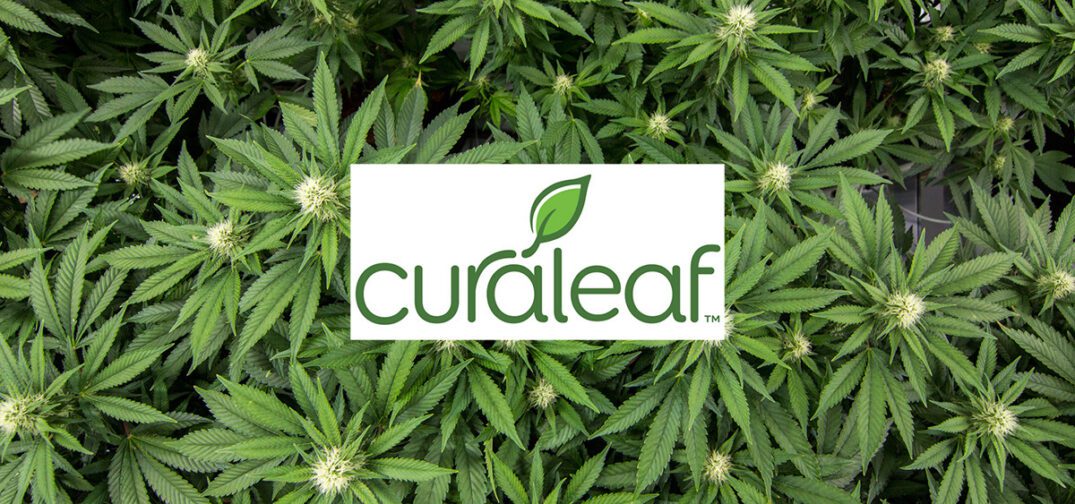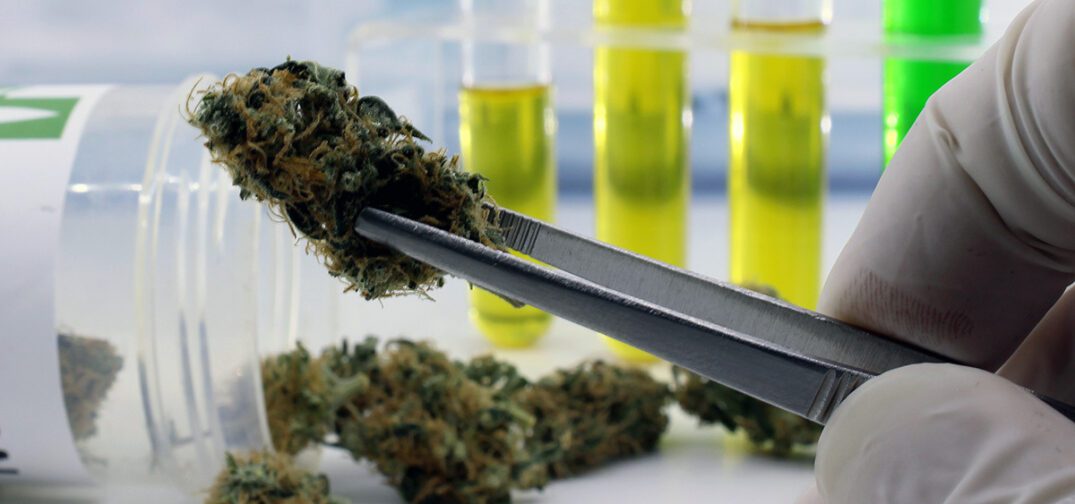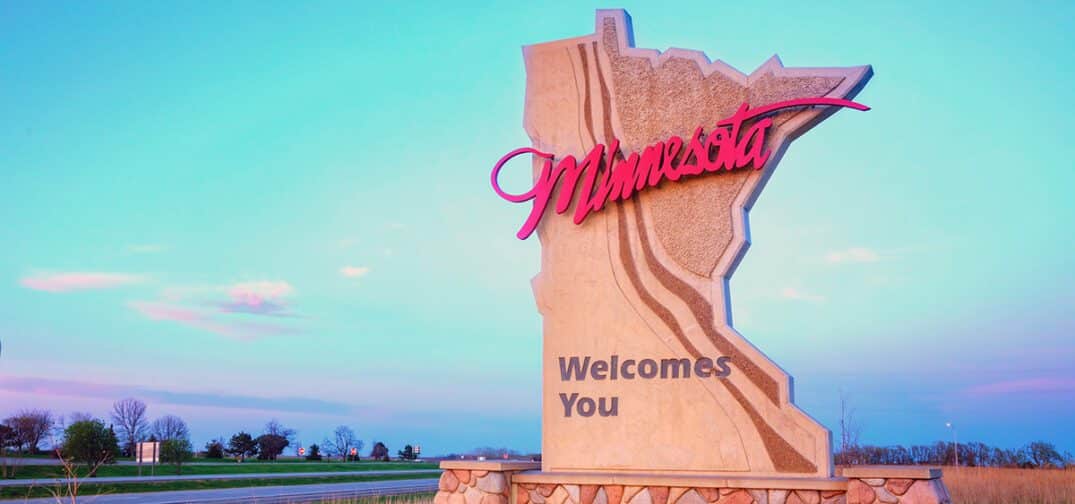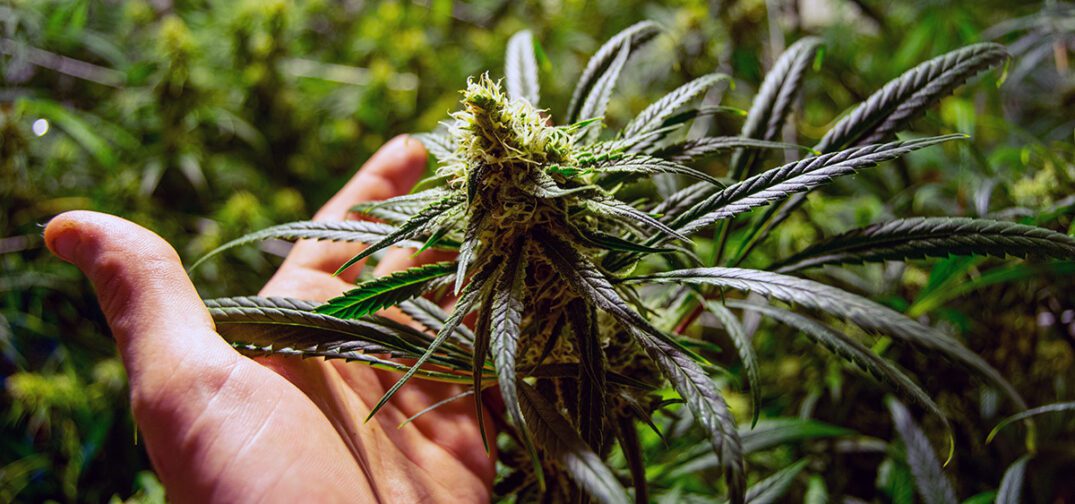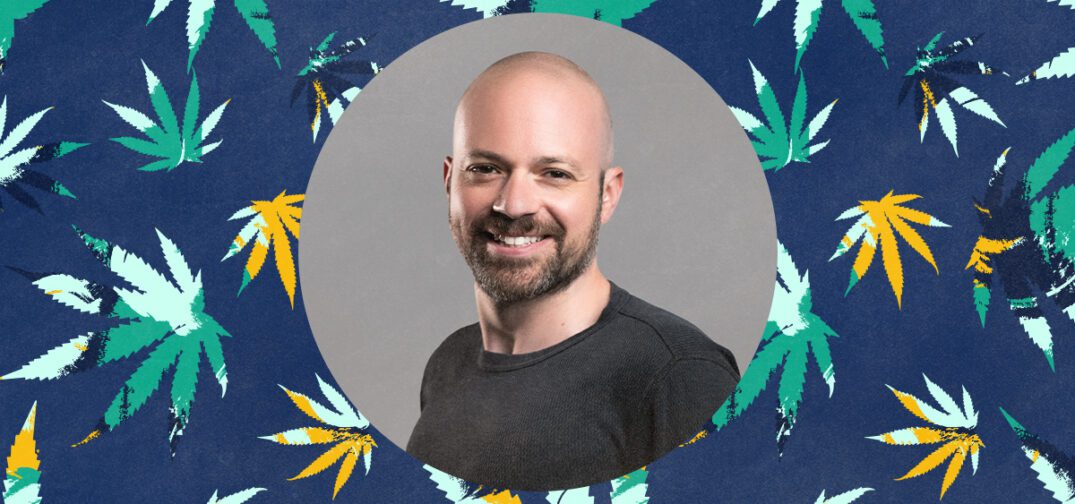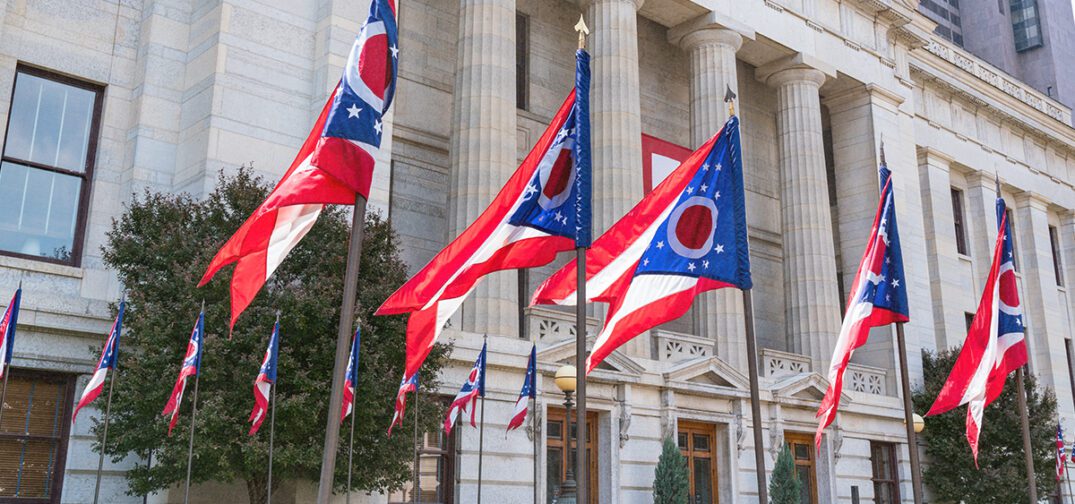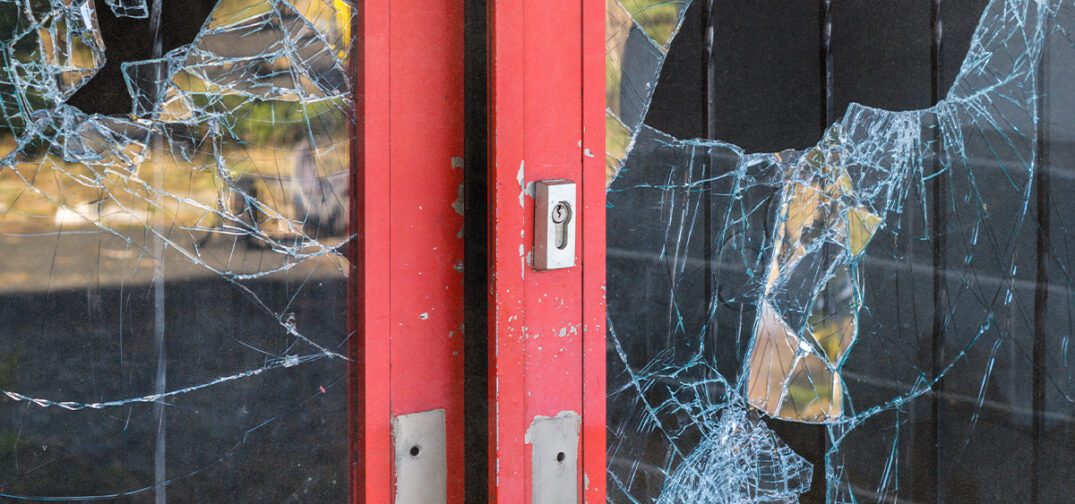This article was written by Gaspard Le Dem (@GLD_Live on Twitter) and originally published by Outlaw Report.
D.C.’s unlicensed cannabis storefronts — familiarly known as gifting or “I-71” shops — have dodged multiple attempts over the last year by local leaders to crack down on their business.
Earlier this year, they repeatedly locked horns with D.C. Council Chairman Phil Mendelson, who tried passing emergency legislation to shut them down and blasted them as illegal operations run by Big Weed companies from outside the District.
In the end, the gray market came out on top: Mendelson’s crackdown bills failed to pass and a proposed city task force to investigate gifting shops never saw the light of day. But it took persistent pushback from groups like the I-71 Committee and Generational Equity Movement, who aggressively lobbied the council and rallied business owners against efforts to mess with their industry.
Now, those efforts appear to be bearing fruit. Recent amendments to a comprehensive cannabis bill introduced last year by Mendelson on behalf of Mayor Muriel Bowser could offer gifting shops a path to legality by folding them into the District’s regulated market for medical cannabis.
Initially, the Medical Cannabis Amendment Act sought to permanently loosen regulations on medical weed businesses by, among other provisions, allowing dispensaries to deliver pot and eliminating a cap on the number of plants cultivators can grow. It also aimed to further social equity by allowing people convicted of certain weed offenses to participate in the industry.
But last month, the council’s Committee on the Judiciary and Public Safety dramatically expanded the bill’s scope by adding a slew of provisions that, if enacted, would be even more transformative for D.C.’s cannabis industry.
Most notably, the amendments would allow unlicensed cannabis businesses to obtain “transitional licenses” from D.C.’s Alcoholic Beverage Regulation Administration, which oversees the District’s medical weed program. To qualify, gifting shops would need to meet some basic requirements, like having a valid business license, being at least 60% owned by one or more D.C. residents, being located more than 300 feet from a school, and more than 400 feet from another dispensary.
The amendments, buried deep in a 253-page committee report published Oct. 21, caught many cannabis industry stakeholders by surprise. And while some have welcomed the idea of easing unlicensed weed businesses into the legal market, others see it as an unfair proposal that would reward bad actors while punishing businesses that have played by the rules.
Gifters are skeptical
Gray market supporters say D.C.’s gifting shops employ hundreds of Black residents who have disproportionately been targeted by punitive cannabis laws, and that allowing unlicensed vendors to join the legal market is a matter of repairing the damage of the War on Drugs.
Yet gifting industry groups have been quick to voice their discontent with the amended bill, and have complained it was drafted without input from unlicensed vendors.
“We don’t oppose the creation of transitional licenses,” Terrence White, Chairman of the I-71 Committee, said in a statement emailed to The Outlaw Report. “This is something we’ve advocated for since our founding. However, we believe that this was hastily developed with not enough thought put into how it will actually be implemented.”
Chief among White’s concerns is that gifting businesses would be forced to close while they wait for regulators to grant them transitional licenses.
“This means that legacy operators would have to sit on their properties/pay rent for an undetermined amount of time, lay off their employees, and wait until ABRA sets guidelines for compliance before legacy brands are able to continue operations,” he said.
The amended bill doesn’t specify whether gifting shops would need to close while waiting for ABRA to grant them transitional licenses, but the I-71 Committee says that lack of clarity is part of the problem.
“It is incomplete, missing important details and dates to protect minority and legacy operators, and imposes crippling penalties that will harm the current I-71 businesses,” said White.
He also criticized Mendelson and his staff for not taking the I-71 Committee’s suggestions into account while drafting the bill. “We have met with them on a number of occasions and provided our suggestions, but we were met with hostility,” White said.
A staffer for Mendelson did not respond to multiple requests for comment from The Outlaw Report.
Per the committee report, gifting shops would have a 60-day window to apply for a transitional license. If approved, they’d need to submit a “compliance plan” explaining how they intend to get up to speed with ABRA regulations. Regulators would then monitor the applicant business until the compliance plan is deemed fully implemented, at which point ABRA would issue a permanent dispensary license upon payment of a fee.
The amended bill would also create new civil penalties against businesses that operate without a cannabis license, allowing the mayor to seal their premises, slap them with fines of up to $20,000, and revoke their basic business licenses. Additionally, landlords who rent retail space to unlicensed businesses could be fined up to $10,000.
The report notes current enforcement methods have failed because federal prosecutors have repeatedly declined to prosecute charges brought by the Metropolitan Police Department, which routinely raids gifting businesses.
“In many cases, the owners simply relocate to a new location and resume operations,” the report says. “Given the ineffectiveness of criminal penalties, the [amendments] would provide a mechanism for reasonable civil enforcement […].”
Another concern for gifters is that D.C.’s existing medical cannabis market isn’t prepared to handle an influx of newly licensed dispensaries, particularly when it comes to supplying retailers with enough product.
“There are not currently enough cultivation centers equipped to supply the drastic increase in product demand that would be needed when legacy operators transition into medical dispensaries,” White said.
A possible boon for cultivators
For those existing cultivators, bringing gifting shops into the regulated medical market could be a huge financial boon. Currently, D.C. growers are allowed to sell their product — which is closely tracked by ABRA — only to the eight permitted medical dispensaries in the District. (A federal ban on moving weed across state lines blocks them from selling to retailers in other states.)
Meanwhile, gifting shops stock their shelves with pot from various unregulated sources, buying from local basement grow ops or from California’s booming market of unlicensed cultivators. With a transitional license from ABRA, however, gifters would be forced to buy pot exclusively from D.C.’s licensed cultivators.
“We’re really excited about it,” said Grace Hyde, chief operations officer at District Cannabis, a cultivation company based in Ward 7. “I think this is a really reasonable compromise to what everyone wants, which is to grow the market.”
Hyde said granting permits to gifting shops would allow D.C. to meet a surge in demand for cannabis. ABRA enacted new rules this year allowing District residents to sign up for medical weed without a doctor’s note, and even authorizing tourists to shop at licensed dispensaries.
“We need more variety, brands and types of stores,” Hyde said. “Our existing dispensaries are great, but there’s only seven of them, and there’s a lot of people in the District of Columbia.”
“The more the merrier,” she added.
But most importantly, Hyde said, granting licenses to gifting shops would help build a more socially equitable weed industry in the District.
“The I-71 stores have been saying for years, ‘we want to be regulated, give us a license,’” Hyde said. “This makes their license acquisition about as easy as it could reasonably be.”
A blessing and a curse
For D.C.’s existing licensed dispensaries, gifting businesses joining D.C.’s legal cannabis market could be a blessing and a curse.
On the one hand, it would create more direct competition in a relatively small market that has struggled with stagnating patient registrations and high taxes that cut into dispensaries’ profit margins. On the other hand, licensed dispensaries are already competing with gifting shops, which don’t pay cannabis taxes and aren’t subject to ABRA regulations, and integrating them into the medical market could level the playing field by forcing them to play by the same rules as licensed operators.
Norbert Pickett, the CEO and owner of Cannabliss, a licensed medical dispensary in the Northeast D.C. neighborhood of Deanwood, says gifting shops should be required to close their doors until they are granted a transitional license.
“There’s kind of no way around it,” said Pickett. “If you don’t have a license, that’s the law, you can’t operate.”
He said businesses that are granted transitional licenses would need to be closely monitored to ensure they are following the same regulations as existing dispensaries.
“They’re going to have to abide by those same laws if they want to become part of the market,” Pickett said.
He added that ABRA should make sure neighborhoods aren’t saturated with weed businesses to avoid creating unnecessary competition. Gifting businesses have over the years flocked to busy nightlife districts like Northeast’s H Street Corridor or the 18th Street Corridor in Adams Morgan, at times creating tensions with some residents who see them as a nuisance.
“The question is, how many are there going to be per ward so that we’re not encroaching on each other?,” Pickett said.
The deadline to pass the bill is fast approaching. The council’s current 2021-2022 legislative period ends next month, and the measure still needs approval from the council’s Committee on Business and Economic Development before it can be scheduled for a full vote.
At a Q&A session with the D.C. Cannabis Business Association on Monday, ABRA Director Fred Moosally said the agency could start rolling out transitional licenses as early as February, provided the council and mayor approve the bill, and that it clears the required 45-day congressional review process for new D.C. laws.
ABRA did not answer specific questions from The Outlaw Report about transitional licenses and how the agency would implement them, but a spokesperson said it is prepared for a shift in local weed regulations.
“ABRA will be prepared to implement any medical cannabis legislation passed by the DC Council and signed into law by Mayor Muriel Bowser,” a spokesperson said.
